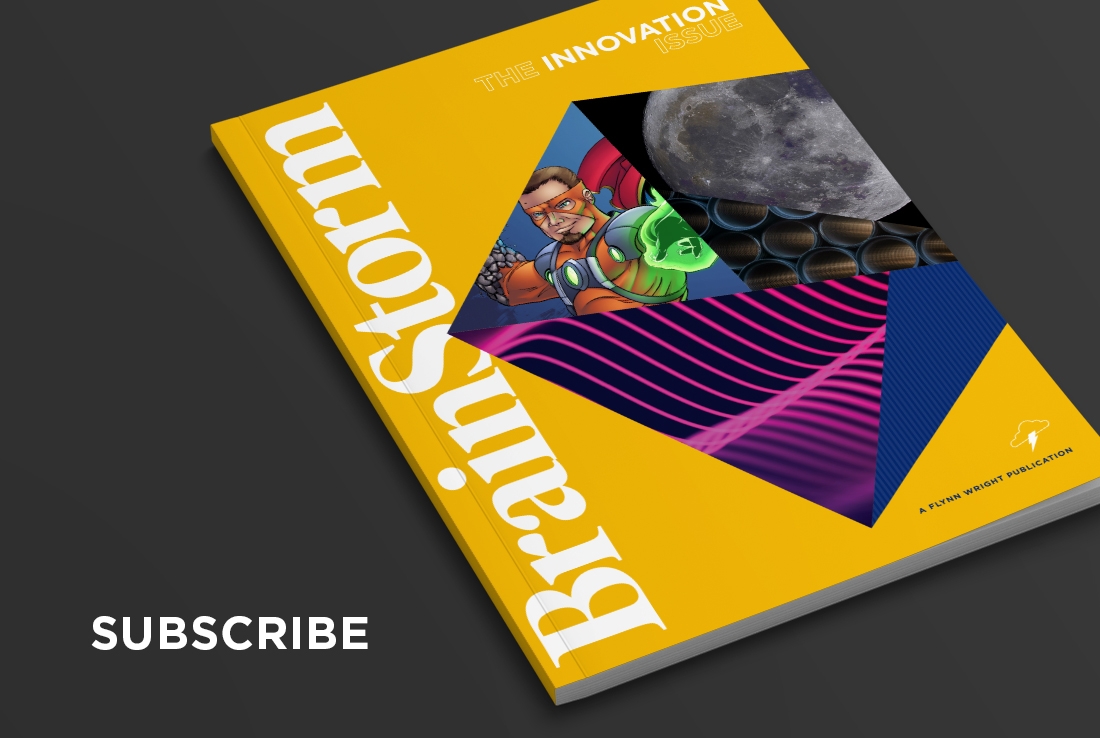insight

Q: We’re here to talk about Flynn Wright’s demand side platform — or DSP — and how it helps us innovate. But it may make sense to first talk about programmatic media buying, because of how it relates to DSP. So, programmatic buying: What is it?
Megan: Programmatic media buying is technology that now allows advertisers to access audiences across the internet on thousands of different websites based on their interests or behaviors, and not necessarily based on the content they are consuming. In the past, if you were trying to reach sports enthusiasts to buy a tennis racket, you would place an ad directly on ESPN.com. Now, you can reach sports enthusiasts across the entire internet, no matter where they are surfing.
Kyle: To Megan’s point, it enables us to zero in on a specific consumer or B-to-B segment and secure ads or content where they are, versus placing media in specific online places you hope they will visit.
Q: It seems logical that a programmatic media strategy would be more effective and efficient, with less audience waste. With that in mind, what is a demand side platform, or DSP?
Megan: It is the vehicle we use to programmatically bid on and secure available ad impressions across the internet. It gives us direct access to our own server rather than go through a third-party to build and manage programmatic campaigns.
Q: Will you explain why having our own DSP is so important for programmatic media planning and buying?
Megan: When programmatic ad buying first came on the scene, the technology was so new that specialists had to be the ones managing campaigns for advertisers. As things have evolved, agencies like ours can build their own teams to manage campaigns. Having our own DSP also allows for greater transparency and real-time insights into what kind of ad inventory, audience segments and tactics generate the best performance.
Kyle: Our own DSP also gives us access to better inventory at better pricing. We have greater efficiency of not going through a middle-man, resulting in better costs and more flexibility in buying and optimizing, and better analytics.
There are new opportunities each day, and we are among the first to be able to test them.
Q: Let’s take these one by one. What do you mean by better inventory?
Kyle: When digital media first started, everyone thought volume of impressions was most important. But that was before technology evolved to give us better targeting. Now, we focus on quality impressions rather than volume of impressions, and we have access to premium ad inventory others may not immediately have.
Megan: We have access to almost every ad opportunity on what’s called the “open exchange,” but we can also get pre-negotiated premium inventory through marketplace deals, as well as direct publisher inventory at large scales. Basically, because of our access, expertise and buying power, we can buy from more sources than an agency or client without its own DSP.
Q: To that point, for an agency without its own DSP, how does it place digital media?
Megan: They could work with a third-party firm that has its own DSP. Or, they may use more simplified buying interfaces, such as Google Ads. It’s also possible to go directly to a publisher or media outlet — you just need to ensure they aren’t reselling third-party DSP inventory with a passed-on margin.
Q: “Optimization” is an industry term you’ve used. What does it mean and why is it important?
Kyle: It’s different than “optimization” for organic website searches. In that case, it means developing content for a site that can easily be found through search engines. In digital media terms, it means using analytics to identify what elements of a campaign are working and what aren’t, such as target audience, channels, or actual creative or content. It becomes your “junk filter.”
Megan: Optimization helps us “fish where the fish are.” We can turn off elements of a campaign that aren’t working and allocate more money to things that are. This could be as small as deleting a specific website or audience segment from the campaign, or as big as eliminating an entire digital vehicle, such as Facebook or YouTube, to shift dollars to a vehicle performing better.
Basically, because of our access, expertise and buying power, we can buy from more sources than an agency or client without its own DSP.
Q: Digital media inherently lends itself well to analytics. How does having a DSP improve that?
Megan: If you’re relying on a third party to provide performance analytics, it takes a lot of time and energy to request or get access to them. And, there is little flexibility in changing what you see and how often. With our own DSP, we can access and provide reporting as often as we and our clients want.
Kyle: It also helps us track performance deeper into the sales funnel. We have more control over what’s analyzed, so we can follow prospects beyond ad clicks and see what actions are taken after that point.
Q: Is it unique for an agency our size to have its own DSP?
Megan: Absolutely. We have one of the largest media teams in Des Moines and our own in-house buying team to fully staff digital optimization, reporting, traffic and everything that comes with it. Not just any agency could have their own DSP, because they’d need the business, staff and expertise to support it.
Q: With all the benefits, why wouldn’t any agency pursue having a DSP?
Kyle: They would need programmatic applications, volume of business and people to manage it.
Megan: Yes, you must have the people to staff a comprehensive digital buying team, as well as the scale for it to make sense investing time. There are also software licenses required. So, you can’t just flip a switch.
Q: I’m glad you’ve brought up team and people: What role do our team members play in this?
Kyle: To run a DSP, an agency needs knowledgeable people with exceptional skills to plan, analyze and optimize media within the DSP. It doesn’t run itself.
Megan: We have several employees who play crucial roles — media planners who are experts in top-level and tactical strategy; media buyers who set up, optimize, and manage all campaigns; digital traffic managers who ensure all creative is running and tracking; and analysts who set up conversion tracking and review all data. It’s a full group of experts.
Q: We believe we have a strong advantage when it comes to digital media. How does all of this come together to create that?
Kyle: Having all of this under one roof is a tremendous advantage, and our clients are benefiting from it. The expertise and analytics related to a DSP inform all other agency services — research, audience segmentation, creative execution and more.
With our own DSP, we can access and provide reporting as often as we and our clients want.
Q: What’s next in programmatic buying that our DSP will help us leverage?
Kyle: We’re already on the cutting edge of connected TV and internet-driven entertainment. There are new opportunities each day, and we are among the first to
be able to test them.
Megan: Mobile device ID targeting; growth of native display and video inventory; continued growth of mobile advertising; growth of audio inventory, such as podcasts and Spotify without minimums; more opportunities using first-party data that has been collected. The opportunities are endless.
Q: What should someone ask their internal team or agency about having their own DSP?
Kyle: How are we segmenting? Are we getting the best inventory? Are we overpaying? How are we analyzing? How are we optimizing? Can we be nimble enough to be effective?
Megan: Who is our DSP partner? Who is optimizing to ensure our media is most effective? If there is no direct DSP partner, are we paying multiple markups for media we’re buying? What site analytics are we reviewing on a regular basis? How often do we get reports? How quickly is the agency able to turn around a report? How quickly can we execute a digital campaign? What kind of minimum budgets are required through channels we’re buying?
All important questions anyone in charge of marketing should ask. Fortunately, as you’ve seen with Kyle and Megan, our team has the answers. How about you — do you have a question? Email me, Jeff White, at [email protected] and I’ll get you the answer.






